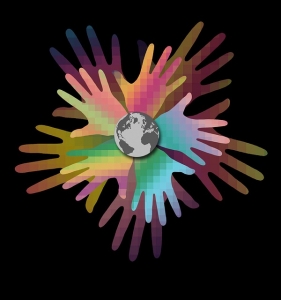St. Jude Children’s Research Hospital Reports:
- Approximately one of every 350-400 African-American infants in the United States is born with sickle cell disease.
- Sickle cell disease affects about 50,000-70,000 people in the United States.
- World-wide, sickle cell disease is most common in people from India, Africa, the Mediterranean, Central and South America.
Thank you for sharing your story. It is not often people get a chance to hear about Sickle Cell Anemia from a multiethnic point of view. Reading your responses to the questions below, I felt like I could really relate the worry that I first felt when I found out my child would have Sickle Cell Anemia. Parenting a child with Sickle Cell takes a strong parent, so I am grateful that you were willing to share. Thank you!
1. When was your son diagnosed with Sickle Cell Disease?
My son was diagnosed with Sickle Cell Disease at birth (SC). That was almost four years ago.
2. How has parenting a child with Sickle Cell Disease affected your life?
Being a woman of mixed race (Latino, African-American, Caucasian), I was informed by my biracial mother (African-American and Caucasian) that she was a sickle cell carrier, but that I wasn’t “black enough” to be a carrier. She was wrong. We were devastated at the news but I am happy to report that my son has never had a pain crisis or other Sickle Cell Disease related issue. Having said that, our household still deals with this disease. When he gets a fever, we have to take him to the hospital where he is immediately given an IV and pumped with very strong antibiotics. He has also acquired an unhealthy fear of doctors and needles. As a mom, even though he has been blessed with health, I still worry about extremely hot days, swimming pools, icy days, and making snow angels. Because of his disease, I learned a new skill—feeling for a spleen. His doctors are amazed at my spleen-feeling skills.
3. What are some steps you take to keep your son healthy?
We love air conditioning in our family! Our little guy gets bundled up during the winter months and I’m constantly pushing water bottles his way. He takes his penicillin twice every day, and we take his hematology visits seriously. We listen and monitor when he says he has an ache or pain. When he was in daycare (I stay at home now), we informed the staff of his diagnosis and explained the disease to them. Knowledge is power!
4. How are you raising awareness about Sickle Cell Disease, and how can others help support this cause?
I have a blog called Fiery Wife (www.fierywife.blogspot.com) where I speak of family life. Sickle cell is part of our lives whether we desire it to be or not. I’ve blogged about his disease knowing that the majority of my readers have never heard of it, or visions of blood transfusions and walkers come to mind when “Sickle Cell” is uttered. We don’t hide that our son was diagnosed with this disease. We are open with family and friends, co-workers, and church members about it and our struggles with it.
5. Is there one myth that you would like to dispel about people living with Sickle Cell Disease?
Sickle Cell Disease is not just a “black people” disease! There is not a certain percentage of “blackness” you need to have before you can potentially be a carrier or have the disease. That’s why it’s part of the typical round of tests that newborns are given in the hospital. There are people of every race and background that are affected. Sickle Cell Disease is not a chronic pain sentence! There is hope! There are people living healthy, active, pain-free lives that have this disease.
6. What do you want the world to know about Sickle Cell Disease?
This disease is life-altering but not life-halting. There is hope for the people who suffer with this disease and the families and friends of people with Sickle Cell Disease.
Bio
Fiery Wife is the mom of two amazing children, one of which happened to be diagnosed with Sickle Cell Disease at birth. But his diagnosis doesn’t define him or their dynamic family.
Read the other #30forSickleCell posts here:
- September is National Sickle Cell Awareness Month
- #30forSickleCell Know Your Sickle Cell Trait Status
- Sickle Cell – A Parent’s Perspective #30forSickleCell
- Sickle Cell – A Hematologist’s Perspective
- Sickle Cell: A Firsthand Look at T.J. Brown’s Holistic Experience
- Sickle Cell: Erase the Shame and End the Silence #30forSickleCell
- How Can Family Members Support Someone With Sickle Cell? #30forSickleCell
References
Photo Credit: Pixabay.com
Centers for Disease Control and Prevention (CDC). September 26, 2012. Sickle Cell Disease Education and Awareness in Your Community. Retrieved from http://youtu.be/gnrvYsZWR1c
St. Jude Children’s Research Hospital. stjude.org. About Sickle Cell Disease. Retrieved September 8, 2014 from http://www.stjude.org/stjude/v/index.jsp?vgnextoid=7931ef5d00670110VgnVCM1000001e0215acRCRD&vgnextchannel=3bbdbfe82e118010VgnVCM1000000e2015acRCRD
People from a variety of multienthnic groups can have different types of SCD http://t.co/214jQ7A290 #30forSickleCell pic.twitter.com/ZHyX5JodRY — CleverMom (@Cleverlychangin) September 9, 2014



